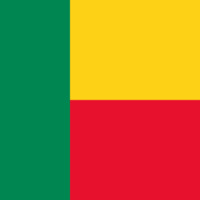Report
Islamische Bildung in Benin: Lehrer als Akteure des Wandels
- Title
- Islamische Bildung in Benin: Lehrer als Akteure des Wandels
- list of authors
- Andrea Peters
- Abstract
- Benin has a distinctive Islamic school system, constantly evolving since the colonial period: Besides the Coranic schools, which are still the basic instance of religious socialization, écoles arabes were established since independence, and furthermore there is an increase in écoles franco-arabes since the past ten years. This type of school combines religious and secular education. In the process of change in the educational system teachers are considered to be the key actors and initiators. This paper traces the development of the Islamic educational system by using the example of the city of Djougou in northern Benin. It aims to analyze the motivations of teachers in this arena and explores to what extent their self-image and their understanding of ′good education′ has changed. Particular attention will be paid to those teachers who are graduates from Islamic universities abroad. These so-called arabisants have access to strong social networks and use the existing educational structures to gain and maintain social and political influence,
- Benin verfügt über ein differenziertes islamisches Schulsystem, welches sich seit der Kolonialzeit stetig weiter entwickelt und ausdifferenziert: Zu den Koranschulen, die nach wie vor die Instanzen religiöser Grundsozialisation darstellen, kamen seit der Unabhängigkeit zahlreiche écoles arabes hinzu. Außerdem entstehen seit etwa zehn Jahren zunehmend auch écoles franco-arabes, die staatliche und religiöse Bildung miteinander kombinieren wollen. Lehrer werden in diesen Veränderungsprozessen als die zentralen Akteure und Initianten betrachtet. Die vorliegende Arbeit zeichnet die Entwicklungen des islamischen Schulsystems am Beispiel der nordbeninischen Stadt Djougou nach und untersucht, mit welchen Motivationen Lehrer in diesem Feld agieren und inwieweit mit den aktuellen Entwicklungen auch ein Wandel des Bildungsverständnisses und des Selbstverständnisses der Lehrer einhergeht. Ein besonderes Augenmerk wird dabei auf Lehrer gelegt, die an islamischen Universitäten im Ausland studiert haben. Diese arabisants verfügen über weitreichende Netzwerke und können die Schulstrukturen für sich nutzen, um gesellschaftlichen Einfluss zu erlangen und zu festigen.
- Publisher
- Arbeitspapiere des Instituts für Ethnologie und Afrikastudien der Johannes Gutenberg-Universität Mainz
- issue
- 145
- Date
- 2014
- Language
- Allemand
- Type
- Working paper
- Spatial Coverage
-
 Bénin
Bénin
